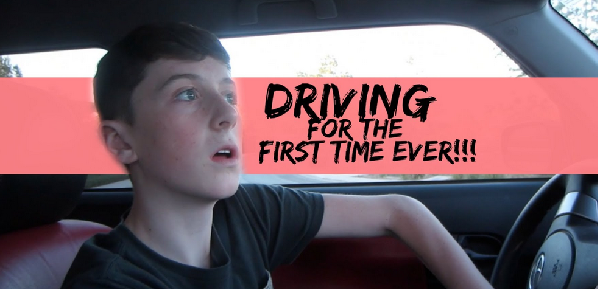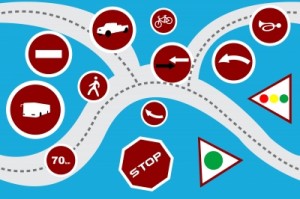We’re here for you during these uncertain times. Our support team is always available - contact us anytime, 24/7!
Should I Get a Hotel & Car Rental Bundle?
 When you travel, whether it be for business or for pleasure, it's likely that you want to stay within some sort of prospective budget. One thing to keep in mind: YOU are the dominant one in the give-and-take relationship you have with your budget. For instance, if you book a cheaper flight with less than ideal times, it may free up more money to stay in a nicer hotel. That's the kind of give and take travelers typically work with. It's up to you, the traveler, to show the budget who wears the pants in the family. You will decide what is the most important part of your trip and where you want to allocate the expenses.
This brings us to one possibility of saving money while you travel: bundling a rental car with your hotel, a tactic that an increasing number of properties are moving toward as a means of an added-value sale. Is this right for you when you're on the road? We look at some of the pros and cons of doing so:
When you travel, whether it be for business or for pleasure, it's likely that you want to stay within some sort of prospective budget. One thing to keep in mind: YOU are the dominant one in the give-and-take relationship you have with your budget. For instance, if you book a cheaper flight with less than ideal times, it may free up more money to stay in a nicer hotel. That's the kind of give and take travelers typically work with. It's up to you, the traveler, to show the budget who wears the pants in the family. You will decide what is the most important part of your trip and where you want to allocate the expenses.
This brings us to one possibility of saving money while you travel: bundling a rental car with your hotel, a tactic that an increasing number of properties are moving toward as a means of an added-value sale. Is this right for you when you're on the road? We look at some of the pros and cons of doing so:
? Hotel / Rental Car Bundle: The Pros ?
[framed_box]1. Cost
The biggest advantage to bundling a rental car with your hotel is the potential cost savings it could net you, thereby freeing up money for you to spend elsewhere on or throughout your trip. This cost savings can amount to as much as several hundred dollars. Like we said in the opening, freeing up a few hundred dollars on hotel and car rental costs just gives you that much more to allocate elsewhere. [/framed_box] [framed_box]2. Convenience
It's much more convenient to keep two major expenses under one roof, so to speak. Convenience may also be experienced by travelers in the form of complimentary transportation from the hotel to car rental lots or in a hotel having access to an on-site rental lot. A time savings may also be realized if you bundle these two expenses while you're on the road. [/framed_box] [framed_box]3. Rewards Points
If you're a frequent traveler, you already likely are earning rewards points through several numerous accounts. The more you spend with an entity, the more rewards points you typically earn. What's more is that bundling within a provider may even offer some sort of added rewards incentive, such as double points. [/framed_box]? Hotel / Rental Car Bundle: The Cons ?
[framed_box]1. Necessity
Yes, bundling a car with your hotel might seem like a fantastic way to shave a few hundred dollars off your trip, but there's one key question you must answer before doing so: Do you even need a rental car in the first place? Bundling a rental with your hotel if you don't need one is wasted money, and with the convenience of Uber, Lyft and taxis - not to mention the hassle of parking depending on where you are going - it may just be easier to skip the rental altogether. [/framed_box] [framed_box]2. Vehicle Quality
Often, when hotels are running deals such as this, there's no guarantee that you're going to get a high-level rental. Hotels will promote such packages to entice travelers to book them, then present them with an older rental, high-mileage rental or a vehicle class size that's not what the consumer may have expected. Before you book this type of a bundle, always be sure that you know what sort of vehicle you're signing on to. Doing so can avoid a lot of frustration at the check in counter. [/framed_box] [framed_box]3. Insurance
With any rental comes questions about what type of insurance - if any - you'll need to be adequately covered in the case of an accident. This can be confusing to many travelers, and can also present an additional expense. Furthermore, your driving record may jeopardize your renting ability - a situation where taking a defensive driving course prior to booking can pay off. [/framed_box]How to save on car insurance: A guide for first time NYC drivers
 Is this your first time owning a car? If so, then you are probably excited. With a personal vehicle comes the freedom of movement everyone desires. No more waiting on buses and subways. You can now come and go whenever you want, uninhibited by transit schedules.
But, you must always remember that car ownership entails great responsibility. Motorists hold their own safety and that of others in their hands. This is why you must have auto insurance in case you are involved in an accident. NYC wants you to be able to pay for any damage caused.
So, now you are probably wondering how much will this car insurance cost, right? Good question.
Read on to find out some of the factors that can raise and lower policy rates for a first-time NYC driver.
[framed_box]
Is this your first time owning a car? If so, then you are probably excited. With a personal vehicle comes the freedom of movement everyone desires. No more waiting on buses and subways. You can now come and go whenever you want, uninhibited by transit schedules.
But, you must always remember that car ownership entails great responsibility. Motorists hold their own safety and that of others in their hands. This is why you must have auto insurance in case you are involved in an accident. NYC wants you to be able to pay for any damage caused.
So, now you are probably wondering how much will this car insurance cost, right? Good question.
Read on to find out some of the factors that can raise and lower policy rates for a first-time NYC driver.
[framed_box]
How does age impact my auto insurance rates?
As is true of most first-time drivers, you are probably young of age. If so, be prepared to pay more than the national average for your auto insurance. In general, insurance companies charge more for young first-time drivers for two reasons. First, the driver is at an impressionable age. They are more likely than older adults to drive fast when hanging out with friends. Also, drinking and driving is a known problem among teens and young adult motorists. Second, you are a first-time driver. Even if you are advanced in age, insurers will probably charge you a bit more. Your inexperience works against you here. [/framed_box] [framed_box]Does my neighborhood impact my auto insurance rates?
Certain neighborhoods and boroughs in NYC are ridden with crime. Many of the criminals are car thieves. As a result, if you reside in one of these areas, expect to pay more than normal to be insured. The risk is just higher than if you lived in a safer community. [/framed_box] [framed_box]Does a defensive driving course lower my auto insurance rates?
You can lower your rate by taking driver education classes. Young people often mitigate some of the extra charges heaped upon them because of age by taking driving classes in high school. Every driver can benefit by enrolling in a New York defensive driving course. The schools offer classes both online and in-person. Best of all, after course competition, you receive a 10 percent auto insurance discount for the next three years. [/framed_box] [framed_box]What impact does my vehicle type have on my car insurance rate?
Insurance companies also look at the type of vehicle when assessing rates. Some models get stolen more than others. Owners will have to pay more because of this risk. In other cases, you may own a sports car known for having horsepower more than what the average motorist can handle. And, your insurer may well raise your policy rate because of this fact. [/framed_box] [framed_box]How much does my credit score influence my auto insurance rate?
Since you are a first-time driver with no driving history, the insurance company will take other factors into consideration. One is your credit rating. If you have good credit, the company may lower your insurance rate a bit. A positive credit score proves you are a responsible person in general. [/framed_box] [framed_box]Does my education background impact my car insurance rate?
Likewise, college students can get lower than normal rates for first time drivers. Their desire to seek a higher education is positive. They are high achievers. They are presumed to perhaps better understand the effects of risky driving on society. [/framed_box] [framed_box]Time to get insured and save money with our tips!
Now that you know how the insurance companies decide how much to charge first time drivers, you are ready to get insured. Try to work on things you can change. For example, attend a New York defensive driving school, pay off outstanding credit cards and enroll in college classes. These types of decisions will make you appear more responsible and can result in a lower insurance rate. [/framed_box]What are Riders in NY Insurance?
 Like every other motorist, you must have NY insurance. There is no way around it. If caught driving without auto insurance, well, you do not even want to know that will happen. It is bad!
So, you have your insurance. But, does the policy really suit you. Did you ask for the agent to personalize things?
Many people do not know that almost every single insurance policy can be modified. You can add terms that will make the policy more beneficial. And, why not? You are the one who is paying. You are who will need the insurance payouts when things go wrong.
Always remember that when the company writes its standard policies, they are thinking about their own risk. The contract is in their best interests. You need to be smart and add riders, which are special terms, to the policy.
Sit down with your insurance company representative and discuss your specific needs. Then add these special conditions.
Following are some of the more popular auto insurance riders in NY.
Like every other motorist, you must have NY insurance. There is no way around it. If caught driving without auto insurance, well, you do not even want to know that will happen. It is bad!
So, you have your insurance. But, does the policy really suit you. Did you ask for the agent to personalize things?
Many people do not know that almost every single insurance policy can be modified. You can add terms that will make the policy more beneficial. And, why not? You are the one who is paying. You are who will need the insurance payouts when things go wrong.
Always remember that when the company writes its standard policies, they are thinking about their own risk. The contract is in their best interests. You need to be smart and add riders, which are special terms, to the policy.
Sit down with your insurance company representative and discuss your specific needs. Then add these special conditions.
Following are some of the more popular auto insurance riders in NY.
Rental Car
What if your car breaks down or is destroyed in an accident? You will have to rent a car while things get fixed. One or two days is not all that bad. But, what about a few weeks? Those payments can prove financially draining. Adding a rental car rider to your insurance can be a smart move. Most likely, the insurance company will want to set a predefined time period, for example, three weeks, in which they will pay for a rental car. Hopefully, you have your car back within the agreed upon timeframe.Safe Driver
You can also add a safe driver rider. If you go without any major traffic infractions or accidents for a lengthy period, your insurance rate would be lowered. Fortunately, you already have a de facto safe driver rider. If you complete a defensive driving NY course, you get an automatic 10 percent auto insurance rate discount for the next three years. Classes are held both online and in-person for your convenience.One Accident
Everyone makes mistakes. You might do so while driving and cause an accident. If you are at fault to any extent, even partly, in general, your insurance rate increases. You can prevent this from happening by adding a one-accident rider. It is a freebie for the first time “offender,” so to speak.Roadside Assistance
This rider allows you to call for emergency assistance at any time without having to pay. These riders are great deals because you never know just when your car will leave you stranded. When it happens, the last thing you want to worry about is whether you have the extra cash to pay for a tow truck or mechanic.Vehicle Depreciation
This rider gets you a promise that the insurance company will not take any depreciation of car value into consideration for a certain agreed upon period.Car Theft
Good for those who reside in high crime areas. For example, you can get a promise not to consider your high-crime location if you park your car in a secured location, such as a private garage. Also, you can get this rider if you can prove that your neighborhood is changing. Perhaps the insurance provider will not raise your policy so long as the crime rate continues to decline in the area.Time to Get the Policy You Deserve
No need to accept a boilerplate insurance contract. Ask for reasonable riders, those insurance terms that are of specific benefit to you.Idaho Goes Digital With Insurance Proof
Guess what! **Idaho just made history** by being the very first state in the U.S. to let drivers show proof of insurance on their smartphones. Imagine getting pulled over and all you need to do is pull out your phone – neat, right? This is the first in what many believe will become a huge exodus away from paper 'proofs' to digital 'proofs.' And it make sense. Smartphones and other electronic handheld devices are ubiquitous. And just about every company already provides electronic access to features, accounts, profile and other information. It just a small step for these companies to create and offer free apps which provide the legal documentation required. Last week Idaho Governor Butch Otter signed SB 1319 which allows Idaho drivers to either show proof of coverage with a smartphone App or even just a PDF copy saved on their phone. For those without such devices the traditional hard copy proof of insurance card will still be accepted. The new Idaho bill passed the Senate unanimously, and passed the house with only one "nay" vote. This is due not just to the fact the new legislation is expected to save money, both for insurance providers and the insured, but also to make it easier for drivers to prove they are insured in the event of a traffic stop or vehicle crash. Idaho may have been the first state to allow digital proof of insurance, but other states already have pending legislation that will do much the same thing. Alabama will soon publish regulation which allows motorists to electronically display electronic proof of insurance at registration and during traffic stops starting next year. The Arizona Legislature has approved legislation which allows motorists to display proof of insurance electronically and is currently awaiting final approval from the governor and in California, legislation allowing insurers to provide proof of insurance to a mobile electronic device is currently working its way through the House.Insurance Rates Go Up Because Of Texting
Think crashing and injuring yourself or others isn't a good enough reason to stop texting while driving? Well, now *increased insurance rates* jump into the picture! That's right, insurance companies are reporting that rates have been going up primarily because of the increase in vehicle crashes caused by distracted driving. Every time someone slams their car into a tree while Tweeting their friends about the bad day they had at work, an insurance company has to pay. If an insurance company has to pay they pass that "loss" on to all their members, thereby raising rates ever so slightly. If this happens often enough, rates can go up significantly. And if you consider that distracted driving is now more dangerous and more likely to cause a traffic fatality than driving under the influence, it is no wonder rates are going up.
According to a recent report by 4autoinsurancequote.org the number of crashes caused by drivers using their cell phones for one reason or another have doubled since 2005. This increase in crashes is having an impact on insurance rates. That means drivers who don't use their cell phones while they are behind the wheel are paying the price for those drivers who do.
If this happens often enough, rates can go up significantly. And if you consider that distracted driving is now more dangerous and more likely to cause a traffic fatality than driving under the influence, it is no wonder rates are going up.
According to a recent report by 4autoinsurancequote.org the number of crashes caused by drivers using their cell phones for one reason or another have doubled since 2005. This increase in crashes is having an impact on insurance rates. That means drivers who don't use their cell phones while they are behind the wheel are paying the price for those drivers who do.
According to a recent report by the Centers for Disease Control, 25 percent of all drivers between the ages of 18 and 29 say they make a habit of using their cell phones while driving. This might be why the National Highway Transportation Safety Board saw a marked increase in the number fatalities related to distracted driving since 2008. There really is no excuse for distracted driving. All you have to do is not use your phone or any handheld device and concentrate on the skill of driving to decrease your chance of having a fatal accident, yet people continue to do it. Now we are all paying the price for other driver's reckless behavior. Image: digitalart / FreeDigitalPhotos.net
3 Ways to Prevent Your Car Insurance Rates
Seeking ways to **save money** drives many folks these days. However, with one or more **traffic violations**, you might find your **car insurance rates** gobbling up all your savings. If you’re feeling trapped in a traffic ticket pile up, here are three ways to dig yourself out of the unwelcome weight of higher insurance rates: 1. Shop around for a better rate. The first thing you should do is to compare quotes from various car insurance companies to see if you can find a lower rate. According to an Insurance.com analysis of more than 32,000 insurance policies sold in 2010, drivers who bought a one-car, single-driver policy last year and had one violation in their driving history paid an average of 18 percent more for car insurance than drivers with no violations. The numbers get worse as your offenses pile up. Drivers with two violations paid 34 percent more for insurance, and drivers with three violations tacked on a whopping 53 percent to their insurance costs when compared to drivers who were violation-free. If you decide to shop around for a better deal, investigate new companies carefully to avoid any policy pitfalls. 2. Take a driver safety course. Some states reduce or expunge points from your driving record if you take a defensive driving class. Depending on where you live, your auto insurance company may be required to lower your car insurance premium after you complete the course. For instance, New York offers a Point and Insurance Reduction Program (PIRP). If you are the principal operator of a motor vehicle registered in the state of New York, and you complete an approved PIRP course, you will receive a minimum 10% reduction in the base rate of your automobile and motorcycle liability and collision insurance premiums each year for three years. To learn more about the driver safety courses and point and insurance reduction in New York, please visit: https://transact.dmv.ny.gov/pirp/#ipirp. In many states, insurance companies have point systems that are different from their DMV driver violation point system. Contact your insurance company about their point system and find out how completing a driver safety course may reduce your rate. 3. Raise your deductible. Drivers who raise their collision and comprehensive deductibles from $250 to $500 or $1,000 will see their annual premium fall. However, before taking this route, make sure you have enough money in savings to cover the deductible should you have to make a claim. Which violation hurts your rate the most? Car insurance rates soar for drivers who have one moving violation and jump by more than 50 percent after three. Some of the violations that hurt your car insurance rates the most include:- Speeding tickets
- Driving under the influence of drugs or alcohol
- Careless or reckless driving
- Running red lights
- Failure to yield or stop at a sign
- Fleeing from police
- Driving the wrong way down a divided highway
- Improper passing
- Unsafe U-turn
- Failure to use a child restraint
Different Insurance for Different Stages of Your Life
Your age changes your insurance rate. A young driver gets charged more since they’re a higher risk. Older drivers’ rates consider their slower reflexes and declining vision/hearing. Your life stage plays a big part in your insurance rate, but **discounts** are available for every stage. Knowing all the discounts lets you **control** your auto insurance rate. Young Drivers - Young drivers need discounts, but there are not many available. Is your student on the honor roll? Honor roll students qualify for discounts with many companies. Other companies offer safe driver programs for teens that may include completing a defensive driving course. Check with your agent to see what discounts are available in your state and with your auto insurance company. Adult Drivers - A homeowner discount is one of the biggest discounts offered by auto insurance companies. With some companies, this discount only requires your own your home. With other companies, it is a discount given when you have auto and homeowner insurance with the same company. Ask your insurance agent if a security system reduces your auto policy premium. The best way for an adult driver to ensure low car insurance rates is to keep a clean driving record. First accident forgiveness and safe driver discounts are available when a driver has a clean record over a long period of time. Senior Drivers - When you reach age 55, ask your agent about special discounts available for seniors. If there is a safety class discount available, call your local Department of Motor Vehicles for a list of approved defensive driving courses. When you successfully complete the safety class, (sometimes referred to as traffic school or a defensive driving school), give the certificate of class completion to your auto insurance agent. Your agent will enter the certificate information into the system and you will see the decrease on your next bill.Insurance Reduction for New York Drivers
New York drivers fork out some of the steepest insurance fees in the nation. Lucky for them, New York is one of the rare states that **requires** insurers to lower premiums. The catch? Drivers need to finish a NY DMV-approved **Defensive Driving Course**. Here’s the kicker: no need to sit in a classroom for six hours! **Online options**, like the Improv Defensive Driving Course, let you **learn at your own pace**. Check out these frequently asked questions about the course. Q. After completing the Defensive Driving Course (aka as PIRP - Point and Insurance Reduction Course), how do I receive the insurance reduction? A. Upon completion Improv's Defensive Driving course, we will issue you certificate of completion. If you present your certificate to your insurance company or agent within 90 days after course completion, your liability and collision premium reduction will begin immediately, retroactive to the date you completed the course. If you present your certificate more than 90 days after course completion, the insurer may issue the premium discount effective from the date presented. Q. Will the PIRP course prevent my insurance company from raising my premiums? A. No. Insurance reduction does not prevent general premium increases, or premium increases due to violations or accidents. However It provides a 10% reduction for three years, from the base rate of your current liability, no-fault and collision premiums. Q. What if more than one person named on a policy completes the PIRP course? A. The insurance premium reduction applies to all motor vehicles principally operated by the motorist who completes the course. The reduction can be applied to only one driver for each covered vehicle. Q. If I complete a DMV approved motorcycle safety/accident prevention course, does the insurance reduction benefit extend to my automobile coverage? A. Yes. The reduction applies to the liability and collision insurance premiums for both your motorcycle and automobile. Q. Will young operators (under 18) and drivers participating in assigned risk pool receive the insurance premium discount? A. Yes. Any insured driver who is the principal operator and completes a Point & Insurance Reduction Program course will receive the reduction. Q. If a youthful operator is already receiving a driver education reduction, will the PIRP discount also be applied? A. Check with your insurance company or agent to find out if both reductions will be given at the same time7-Day Support
Rain, snow, or shine - our support team is here 7 days a week ready assist you with any questions you may have.
(800) 660-8908
Privacy Policy

Refund Policy – Made Simple

Terms of Use

Nepal Relief Fund
A portion of today's sale will go towards helping the earthquake victims in Nepal.
Earn Money With Your Car
Register with UBER and receive a New York TLC Defensive Driving class for FREE by using the UBER provided coupon code.

 Live Chat
Live Chat


